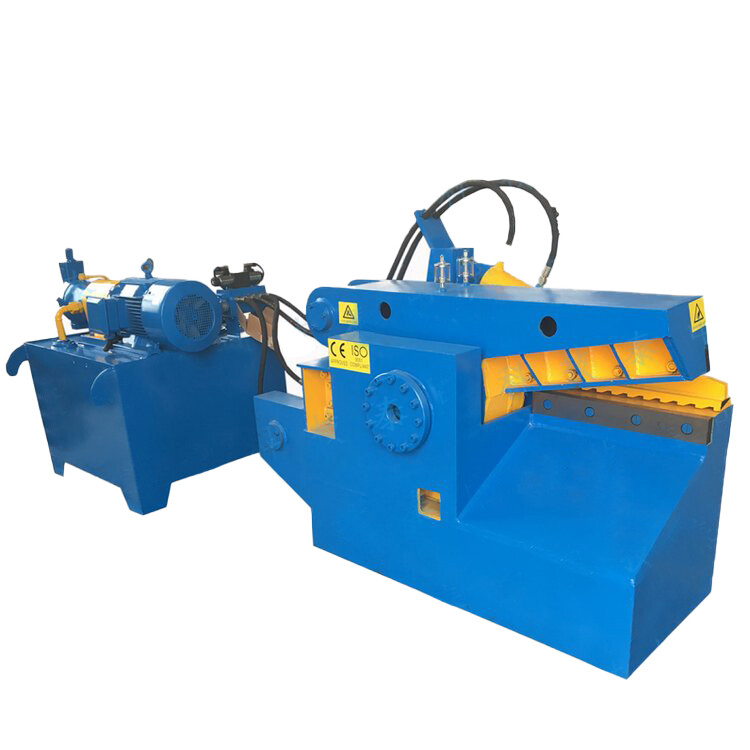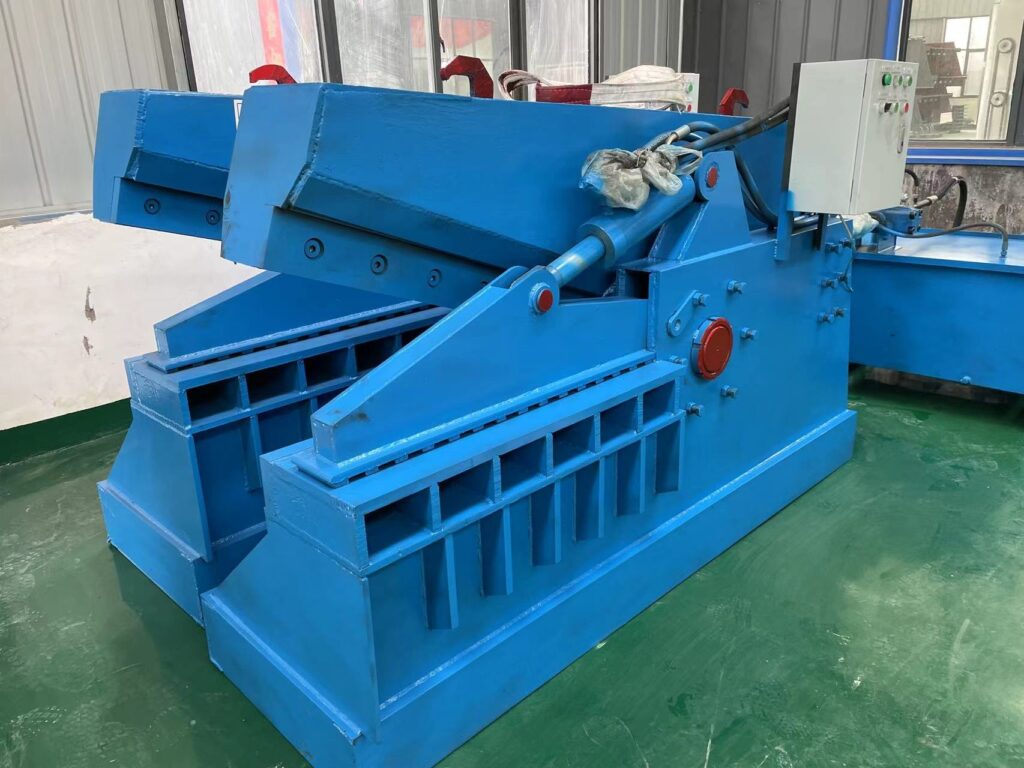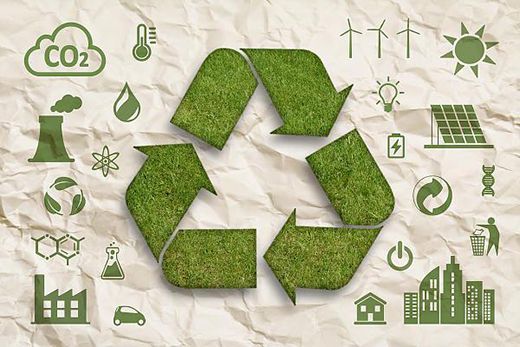Introduction
In today’s fast-paced recycling and metal processing industry, efficiency and precision are key drivers of profitability. Among the wide range of machines available, Alligator Shears stand out as one of the most reliable, versatile, and cost-effective tools for scrap metal yards, recycling plants, and industrial dismantling facilities.
Often overlooked compared to large shredders or balers, Alligator Shears deliver significant value by quickly and safely cutting oversized scrap into manageable pieces. This not only saves space but also prepares materials for further processing, directly boosting productivity and profits.
In this article, we’ll dive deep into how Alligator Shears transform scrap into profit. We’ll explore what they are, how they work, their key applications, and the many ways they enhance recycling efficiency.
What Are Alligator Shears?

Alligator Shears—sometimes called crocodile shears—are hydraulically powered cutting machines designed with a hinged jaw that resembles an alligator’s mouth. They use immense hydraulic force to cut through scrap metal, rebar, pipes, and other tough materials.
Key Features:
-
Hydraulic Power: Provides cutting strength capable of handling thick steel and non-ferrous metals.
-
Movable Jaw: The “alligator mouth” design ensures wide opening and precise closure.
-
Safety Mechanisms: Modern shears come with foot pedals, automatic return, and guards to reduce operator risk.
-
Versatility: Can process a variety of materials, from small rods to large frames.
Their simplicity, durability, and affordability make them a preferred choice for both small and large recycling operations.
Why Alligator Shears Matter in Recycling

Recycling plants deal with a wide variety of scrap materials that come in irregular shapes and oversized dimensions. Without pre-cutting, these materials:
-
Take up unnecessary space in storage areas.
-
Slow down downstream equipment like balers, crushers, or shredders.
-
Increase handling costs and reduce overall efficiency.
Alligator Shears solve these problems by cutting scrap into uniform, manageable pieces, enabling smoother, faster, and more cost-efficient recycling processes.
Applications of Alligator Shears
Alligator Shears are widely used across industries. Here are some of their most common applications:
1. Scrap Metal Recycling
-
Cutting long steel bars, rods, and pipes into shorter pieces.
-
Preparing non-ferrous metals like copper, aluminum, and brass for further processing.
2. Vehicle Dismantling
-
Cutting axles, frames, and structural components.
-
Separating valuable materials from scrap for resale.
3. Industrial Demolition
-
Processing structural steel beams from buildings.
-
Reducing bulky components for easier transport.
4. Foundries and Smelters
-
Pre-cutting scrap metal for furnace loading.
-
Ensuring uniform feedstock size for smelting.
5. Construction Waste Management
-
Cutting rebar and wire mesh into manageable lengths.
-
Reducing bulky demolition waste.
How Alligator Shears Boost Efficiency

The direct link between scrap and profit lies in efficiency—and this is where Alligator Shears shine.
1. Faster Processing
Alligator Shears can cut through tough materials in seconds. Instead of using manual cutting methods like oxy-fuel torches or saws, operators can process large volumes of scrap quickly.
Impact: Reduced labor time, faster throughput, and lower operational costs.
2. Space Optimization
By cutting scrap into smaller sizes, storage areas become more organized and less cluttered. This allows businesses to stock more material in less space.
Impact: Lower warehouse costs and easier handling.
3. Improved Material Value
Scrap buyers and smelters often pay higher prices for material that is pre-cut and sorted. Neatly processed scrap ensures higher market value.
Impact: Direct increase in revenue from each load of scrap.
4. Safer Work Environment
Manual cutting tools like torches or grinders pose safety risks. Alligator Shears reduce accidents with enclosed cutting jaws, automatic stops, and ergonomic controls.
Impact: Fewer accidents, lower insurance costs, and more satisfied workers.
5. Energy Savings
Hydraulic shears are more energy-efficient than many alternatives. With fewer sparks and less heat compared to torch cutting, energy costs remain lower.
Impact: Reduced operating expenses and eco-friendly recycling.
Profitability in Numbers
To better understand how Alligator Shears impact the bottom line, let’s consider an example:
-
A scrapyard processes 10 tons of steel per day.
-
Manual cutting takes 3 hours per ton.
-
With an Alligator Shear, the same ton can be processed in under 30 minutes.
That’s a 6x improvement in speed. Over the course of a year, this translates into:
-
Labor savings of hundreds of hours.
-
Increased material turnover, allowing more daily throughput.
-
Higher scrap value due to better preparation.
When calculated, the return on investment (ROI) for an Alligator Shear often pays back within 6–12 months.
Choosing the Right Alligator Shear
Selecting the right machine is crucial to maximizing profits.
Factors to Consider:
-
Cutting Force – Depending on the thickness of materials, choose between 40–100 tons of hydraulic power.
-
Jaw Size – Larger jaws handle bulkier scrap; smaller jaws suit fine, precise cuts.
-
Automation Features – Options like foot pedals, auto-return, or PLC control improve workflow.
-
Durability – Look for hardened steel blades and strong hydraulic systems.
-
Safety Standards – Ensure the machine complies with CE or ISO certifications.
By matching the shear to your scrap type and volume, you can maximize both efficiency and profits.
Maintenance Tips for Maximum Output
Like any industrial machine, Alligator Shears require proper care. Regular maintenance ensures they deliver consistent performance and a longer service life.
-
Blade Sharpening/Replacement: Keep blades sharp to maintain cutting efficiency.
-
Hydraulic Fluid Checks: Maintain clean fluid to prevent breakdowns.
-
Lubrication: Regular greasing reduces wear and tear on moving parts.
-
Inspection Routines: Check hoses, seals, and safety mechanisms weekly.
-
Operator Training: Skilled operators maximize efficiency and reduce downtime.
Environmental Benefits
Beyond profitability, Alligator Shears contribute to sustainable recycling practices:
-
Reduced Carbon Footprint: Faster processing lowers energy use.
-
Cleaner Recycling Streams: Cutting and sorting scrap improves material recovery rates.
-
Support for Circular Economy: Processed scrap becomes raw material for new products, reducing reliance on virgin resources.
Future Outlook: The Role of Alligator Shears in Modern Recycling
As global demand for recycled metals continues to rise, the importance of efficient, cost-effective machinery like Alligator Shears will only grow. Many recycling companies are now integrating these shears into automated lines, pairing them with conveyors, shredders, and balers for continuous operation.
In the future, we may see smart shears equipped with sensors, IoT monitoring, and AI-driven maintenance alerts. These innovations will further reduce downtime, extend machine life, and improve productivity.
For businesses aiming to stay competitive in the recycling sector, adopting reliable equipment such as Alligator Shears isn’t just a cost-saving measure—it’s a strategic investment in long-term growth, profitability, and sustainability.
